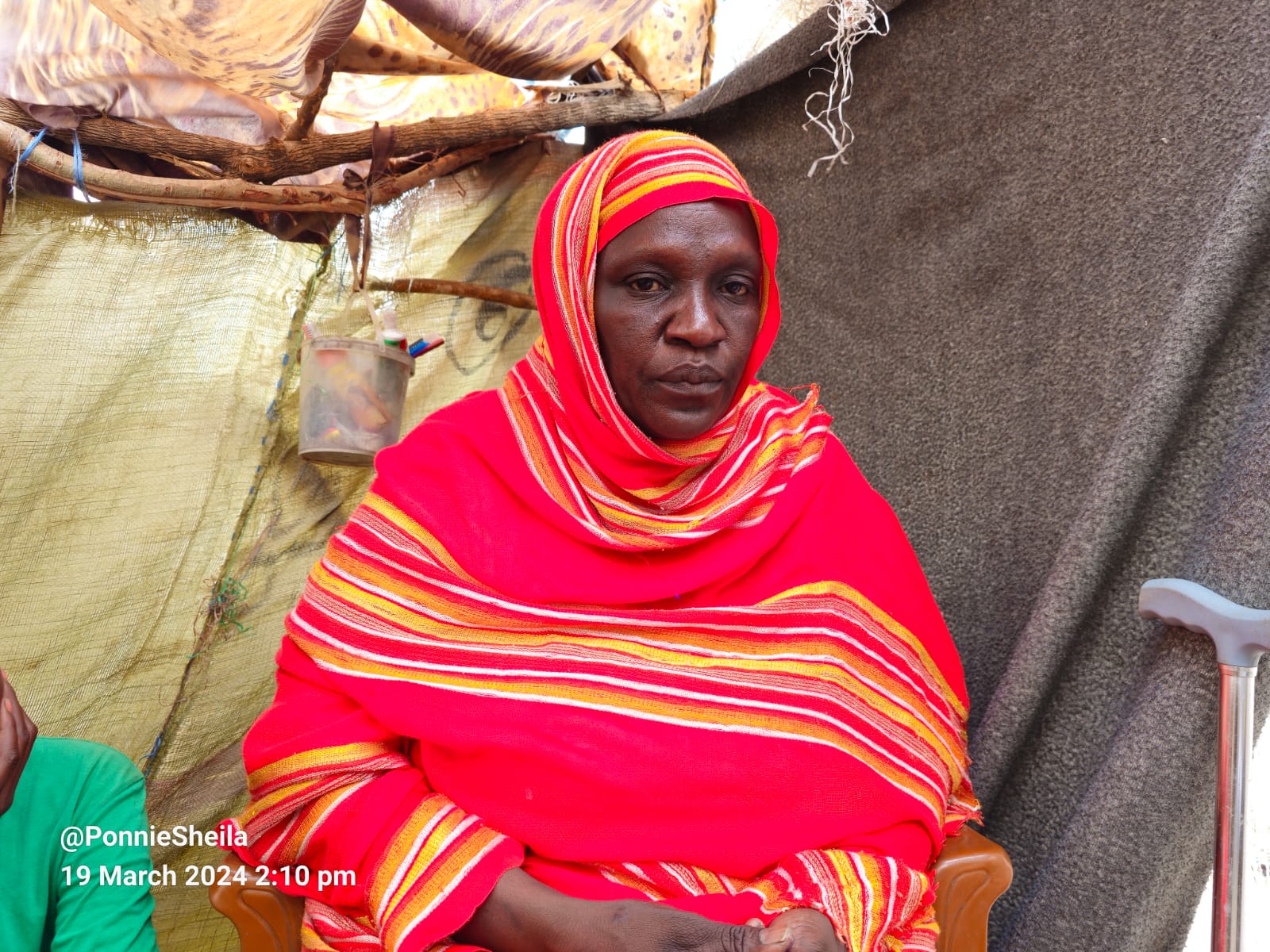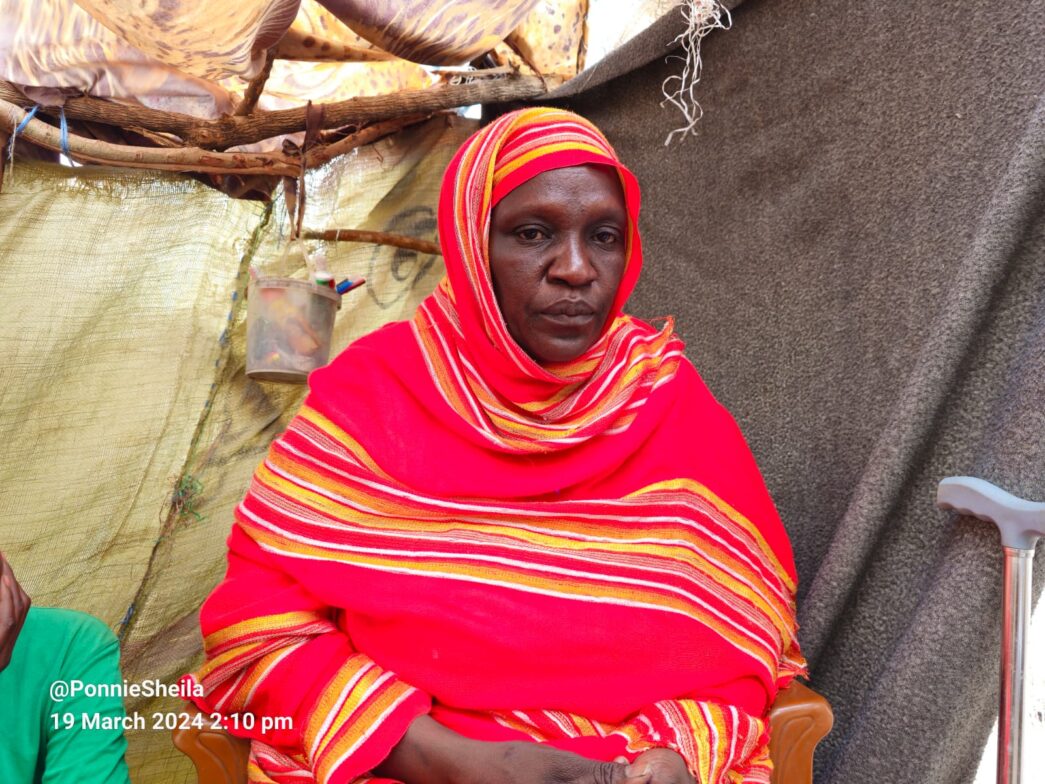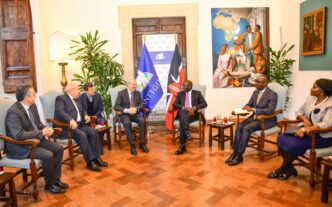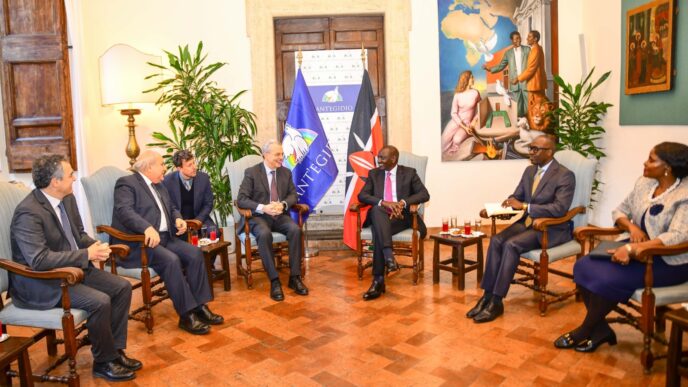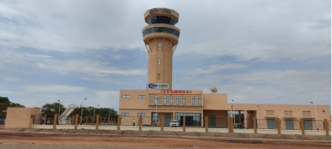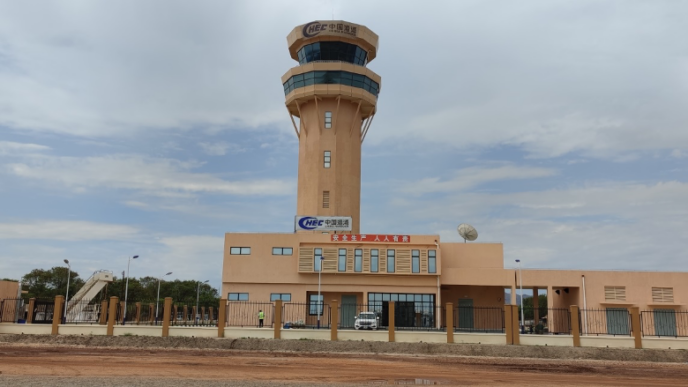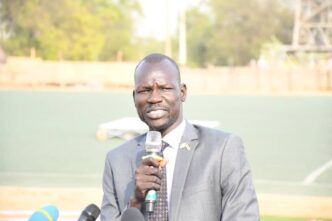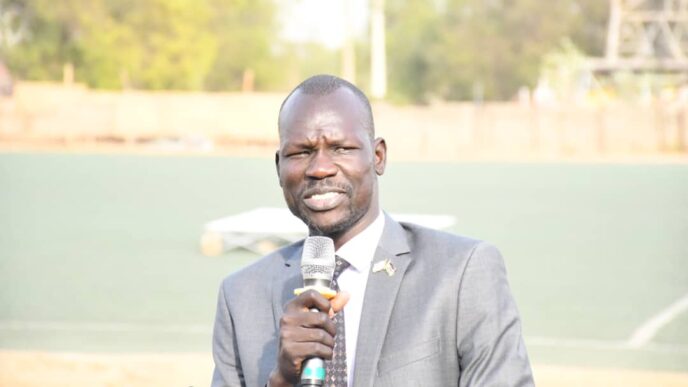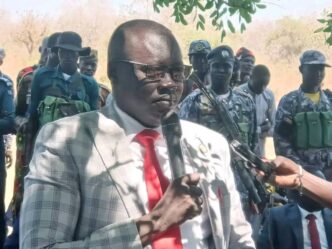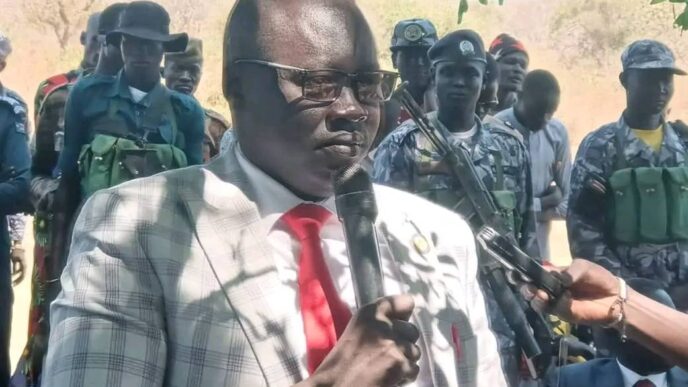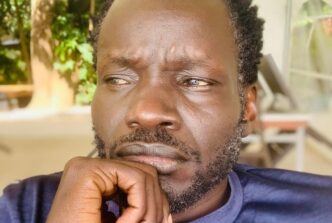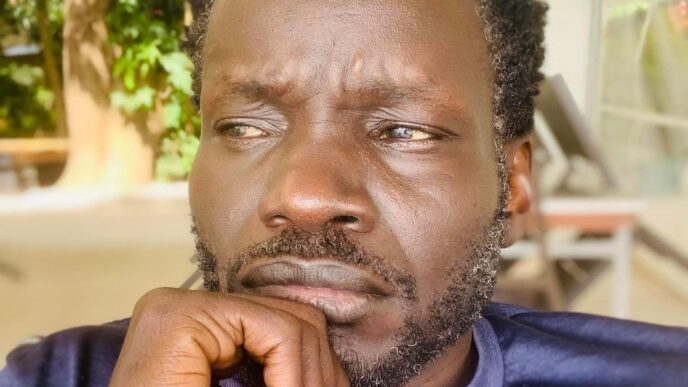[ad_1]
Jawahir Babikeir, 42, escaped the war in Sudan with her grandchildren. [Sheila Ponnie, The City Review]
April 15, 2023, was to be another normal day when families in Sudan would go about their businesses. What looked like a promising day would then be interrupted by the rains of gunshots that started in Khartoum, the country’s capital, and life has never been the same one year later.
The fierce fighting broke out between the Sudanese Army led by Gen. Abdel Fattah Al-Burhan and the paramilitary – Rapid Support Forces, which are loyal to Mohamed Hamdan Dagalo. The war has left thousands of families with untold suffering and shattered dreams. But for the more than 600, 000 people who have crossed to South Sudan for safety, they may be far away from the buzzing sounds of the gun but are facing other social challenges.
Renk County, one of the most remote parts of South Sudan in Upper Nile State, is sneezing from the trails of the aftermath of the ongoing war in Sudan. Here, displaced families are fighting for their lives in a country that also faces deeper challenges of food security, a fragile healthcare system and an underequipped education sector.
Jawahir Babikeir tells The City Review that she managed to escape to Jodah, a transit border point between Sudan and South Sudan, with her four grandchildren.
“I am happy and I think Allah for I and the children managed to struggle to make our way out of the war, and reached South Sudan for safety,” she said.
The conflict has so far claimed more than 15, 000 lives but Babikeirand her family were lucky to escape alive.
“When we were on the way to South Sudan, all I thought about was that my grandchildren and I were going to a better place given that we spent many days without proper food and medication but unfortunately, this is the life we have found ourselves in,” she laments.
Babikeir is currently taking care of four grandchildren who were orphaned after their pregnant mother was struck by a bomb. But the 42-year-old, who also lives with a disability, hopes that the war back at home will end so that she can return to Sudan to get specialised treatment for one of her grandchildren who is suffering from heart complications. “When it comes to treatment, for sure, it is not enough because she is suffering from heart complications and because of these conditions, we can’t find proper medicine because of these tough situations,” she says.
She is now worried that her grandchild’s condition has been worsening from the day they crossed the Jodah border to South Sudan due to lack of medication and proper food.

Mohamed Almahad, 60, also managed to escape to Jodah, with his wife and only daughter, Bhakta, to flee from the fierce exchange of gunfire between the Sudanese Army and the Rapid Support Forces when war broke out in Khartoum. He says they are lucky to be alive and that they left their home over fear of constant gunfire. They were unsure of the duration of the war.
“We heard the guns every single day and night and people ran telling us the military people were close to us so we also decided to run with nothing,” he remembers.
Owing to the conflict in Sudan, medical facilities in the country are in a bad state and doctors have fled for their lives.
Mohamed says that a month before clashes broke out, her only daughter had been diagnosed with breast cancer. Bhakita, speaking through her father, explains, that she started feeling pain and her breast started swelling. “It started with some rushes and chest pain before the skin started peeling off, and it became worse and worse from there,” she recalls.
Crossing the border became more of a curse than a blessing for Mohamed and his family. He claims that they were unprepared for what awaited them across the border.
His daughter’s condition deteriorated after she crossed the border where refugees and returnees from Sudan are administered before being transferred to refugee camps. Living conditions in the transit centres are unbearable. Proper and adequate medication is often impossible, and food supplies are not enough to meet the needs of those passing through on the way to the refugee camps.
Mohamed says the entire family survives on just one meal every single day. Obtaining proper medication is also a big challenge.
Renk and Malakal were both affected by the country’s civil war since 2014, which has severely impacted all health facilities where inhabitants are expected to seek medical assistance.
The most affected is Renk Civil Medical Hospital which, from 2014 up to 2020, has not been able to deliver health services. Ayuel Lual Ayuel, the Medical Director at Renk Civil Hospital in Upper Nile State says the entire state lacks proper medical facilities to treat chronic diseases as conflicts in both Sudan and South Sudan left these two neighbouring countries with a dilapidated healthcare system.
“Many of the South Sudanese and also refugees who now passed or those who are here or came through Renk County, we have encountered a lot of case- chronic cases,” he said.
“[There are] patients with cancer like breast cancer, cervical cancers and different forms of cancers. Others were on chemotherapy when they came here. But we are a county hospital and there are some cases we cannot handle,” he laments.
Due to poor financial status, most returnees and refugees cannot manage to transport their relatives for treatment to the capital city – Juba, which is about a two-hour flight. “At first, we used to refer them to Juba but we got some obstacles as a hospital because as a patient when you are coming from where there is war, you cannot even be having like financial support and all these.”
Ayuel also says that most of the people crossing from Sudan suffer from diabetes but they can do little to help. “We lost two cases of patients with diabetes. They are young – one is male and the other is female. We lost them here in this hospital,” he recalls.
The National Minister of Health Awel Deng said the influx of refugees and returnees is also putting a lot of stress on the healthcare system in the country which barely gets a two-percent budgetary allocation.
[ad_2]
Source link
